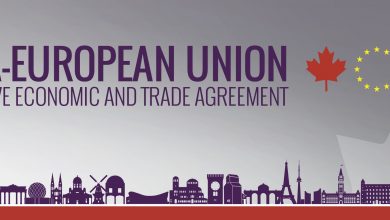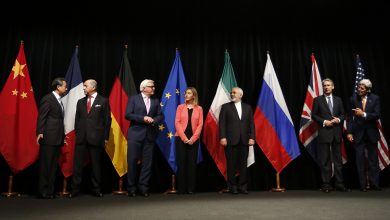China, Cameron and Brexit: the UK’s Risky Global Strategy

Like all European countries, since the 20th century the United Kingdom has been confronted with the ascendance of new powers, which have jeopardised if not outright undermined its once unshakeable global preeminence. Also like all other European countries, the UK has been critically hit by the meltdown of the world economy in 2008, a danger rendered even deadlier by London’s role in the transatlantic network of finance. The UK, however, has responded to these upheavals in a unique way, by pursuing a staggeringly risky strategy together with China.
The long and painful Brexit negotiations have topped the headlines for the better part of two years, and it’s easy to view it as an isolated event. However, Brexit is part of a dramatic realignment of the British position on the world stage. The decision to leave the EU, of course, was determined by voters in a referendum. But the fact that a referendum was held in the first place is no coincidence, nor should we blind ourselves to the complex negotiations between London and Brussels prior to the Brexit referendum.
Cameron‘s domestic calculations in appeasing the far-right by pushing through a referendum are often discussed, but what typically goes under the radar is that the referendum proposal was part of a larger, if incoherent, high-risk foreign policy being conducted by his administration. Under Cameron, the United Kingdom sought a new place for itself in the world, one where British fortunes became inextricably linked with China.
In so doing, it sleepwalked into a dangerous position: it alienated its two major allies – the United States and the European Union – at the same time. The risks involved are massive, and this strategy’s failure – which seems likelier with every passing month – would have far reaching consequences on British foreign policy, and indeed, on the health of the UK as a whole.
The Post-Imperial Conundrum
Britain emerged victorious from the Second World War, at least on paper. In practice, however, it was left in financial and political straits, which made it impossible for it to maintain its empire and dependent on the United States for protection.
In this grim context, Britain found a new place in the growing Western bloc by closely aligning itself to the new hegemon, the United States. It did so not just in defense and foreign policy, but also financially. Britain quickly became the world’s one stop shop for Eurodollars. These were dollars, but made available for lending in Europe, and thus, critically, outside of the regulatory scope of the Federal Reserve.

This would prove particularly significant after the United States abandoned the gold standard. With American assent, the United Kingdom became the link in the financial chain between the two shores of the Atlantic – and later on, the rest of the world. On that bedrock, the City of London obtained its legendary status and spearheaded the phenomenal consolidation of European banks at the turn of the millennium.
Cameron’s High Risk Gamble
The meltdown of 2008 changed everything. It not only threatened to turn into a heart attack of the world economy, but it altered the geography of global finance, with American and Asian banks having more or less recovered, while European banks remained a shadow of their former selves. What, then, would be the UK’s role in this altered international environment? It is fateful that it would fall to David Cameron and his administration to answer this question.
As Prime Minister, Cameron quickly earnt for himself a reputation of a man who put party politics ahead of statesmanship. Starting with the Tory withdrawal from the EPP, Cameron pursued a confrontational strategy with the EU, in which he sought to win more concessions for Britain and placate the rumblings of Tory back-benchers.
It is undoubdted, therefore, that much of Cameron’s strategy of slamming the EU and undermining its authority was motivated by domestic calculations. However, it also fit the government’s vision for the future of the United Kingdom.
Cameron’s unimaginative strategy for the post-recession world was to replicate the strategy that had saved Britain’s prestige during the Cold War. After all, if the world was so hungry for Eurodollars, surely a market could be found for Chinese investment as well. With that in mind, London sought to reposition itself away from the Atlantic, and as the newfound financial link between China and the West.
Needless to say, the prospect of helping China’s grand entry into world finance and the world market held promises of great profits and geopolitical clout. When Tory politicians talk of a Global Britain, this is what they envision. And with HSBC in the lead, Britain has now been marketing itself as the door to China for a number of years.

What was perhaps underestimated in London was the political price of this strategy. The Chinese gamble profoundly displeased the United States, particularly as it became more and more apparent that the relationship was completely one-sided, with Britain giving way to increasing Chinese demands – a subservience that was strongly criticised by American diplomats in 2015.
Likewise, such a move put Britain on a clear course of competition with the European Union: not only was it harder for Britain to pursue a high-risk strategy as a member, but it was also harder to befriend the new hegemon. Neither the EU nor its members had any patience for the unilateral freedom of action the UK now demanded.
To reiterate: at the same time as Cameron was set on a collision course with Europe, he proceeded to also alienate Washington by enacting a policy of cooperation with a dictatorship that represents the greatest political challenge currently faced by the United States. The risks inherent to this strategy look high enough; they become even higher when we consider that there is a crucial difference between the Eurodollar system and the British-Chinese connection. The former was both an economic and a political alliance, but with Beijing there are no such guarantees. The financial ties are not shielded by friendly and long-standing political friendships.
The weakness of this strategy became fully apparent when Cameron lost control of his own referendum.
Intriguing with Allies: Brexit and Power Competition
If a recurring theme can be found when discussing Cameron’s tenure in government, it’s the complete failure to understand the priorities of his own allies. For years, Cameron shunned the EU and sought approval from Angela Merkel instead, firm in the belief that Brussels was powerless and that Germany ultimately called the shots. He also believed that German car-makers were the real grey eminence behind EU politics, and as such, they would eventually persuade Merkel to let Britain do what it wanted, so as not to lose export opportunities in the UK.
This, naturally, proved incorrect. Angela Merkel went on record multiple times, stating that the EU was far more important to German security, and the European Commission stubbornly refused to be sidelined. But all warnings fell on deaf ears in Downing Street. As recently as 2014, the administration claimed that Merkel viewed Cameron as the “naughty nephew”.
It is perhaps bewildering that one of the most developed countries on the planet based an extremely risky foreign policy on the assessment that its Prime Minister was simply too adorable to take no for an answer, but it is the reality we must contend with, when discussing the road taken by the United Kingdom after the recession.

After Cameron’s disgraced exit from politics in June 2016, the Tories have hardly abandoned this logic. David Davis and others were buoyant that Barnier and the European Commission could be bypassed entirely, if only an agreement was struck with Berlin.
Power is a word that is rarely mentioned in European politics these days, and yet there can be no doubt that the United Kingdom framed Brexit negotiations as a question of classic European power competition. By offering German carmakers access to the British market, London would in effect earn the right to become the leader of the continent. And if the bilateralism this requires led to the dismantling of the EU, so be it.
Just as with the American displeasure at British subservience to China, once again the miscalculation of its own allies made it impossible for Britain to pursue its goals. In the end, Brexit was negotiated with Barnier and the European Commission. Regardless of the outcome, which remains uncertain at time of writing, the fact of the matter is that the original Brexit strategy failed miserably.
The Die Is Cast
Independently of how Brexit ends and what lies in wait for British-American relations, the crucial part of Cameron’s plan has already been enacted. As revealed by the Bank of England, British banks are significantly more exposed to China than other European banks, not to mention the Americans. This represents a twin risk: political and financial.
Politically, as we have already seen, the idea (predominant in the 1990s) that power competition was no longer a factor in economic development is now no longer taken seriously. It is openly acknowledged that the rise of China presents a challenge to the West and to the United States. The comments by American diplomats that constant concessions are no way to handle a rising power are a case in point: it is highly doubtful that Britain can juggle a political alignment with its traditional allies, while giving way to Beijing on an increasing amount of matters.
Financially, exposure to China implies severe credit risks. Should Chinese finance so much as sneeze, the City of London would be the first Western financial hub to suffer the consequences – much like in 2008, when the meltdown of the recession nearly stopped the flow of transatlantic finance cold in its tracks.
Of course, in the complex reality of the world economy, everyone would suffer from a Chinese meltdown. Even the relative troubles of 2015 had profound effects on international finance. Nevertheless, in an attempt to salvage its primacy in world finance, Britain has already placed itself first in the line of fire, and this will remain true irrespective of future relations with the United States or the final outcome of Brexit. The future of British finance, and by extension the British economy, now lies with the fortunes of the Communist Party in China.





